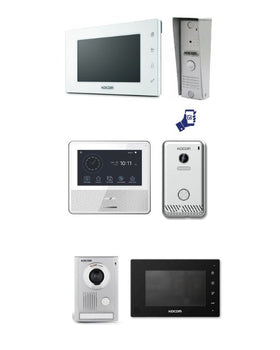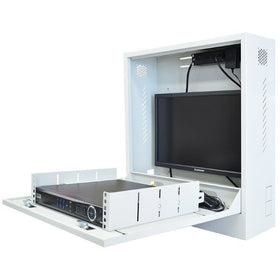
How to choosing the Right Network Video Recorder (NVR) for Your Home or Business
In today's digitally-driven world, security is a top priority for both homeowners and businesses alike. With the advancement of technology, Network Video Recorders (NVRs) have become an essential component of modern surveillance systems, offering efficient and reliable video recording and management capabilities. However, selecting the right NVR for your specific needs can be a daunting task, given the myriad of options available in the market. In this blog post, we'll explore key considerations to help you choose the perfect NVR for your home or business security needs.
Understanding Network Video Recorders (NVRs)
Before diving into the selection process, it's essential to understand what an NVR is and how it differs from other video recording solutions, such as Digital Video Recorders (DVRs). Unlike DVRs, which are designed for analog camera systems, NVRs are tailored for IP camera setups. They record and store video footage from network cameras over a local area network (LAN) or the internet, offering advantages such as higher resolution, scalability, and remote accessibility.
Key Considerations for Choosing an NVR
1. Number of Channels:
- The first step in selecting an NVR is determining the number of channels you need. Channels refer to the maximum number of cameras that the NVR can support simultaneously. For smaller installations, a 4-channel NVR may suffice, while larger properties or businesses may require 8, 16, or even 32-channel models.
2. Recording Resolution and Frame Rate:
- Consider the recording resolution and frame rate supported by the NVR. Higher resolutions (such as 1080p or 4K) and frame rates ensure clearer and smoother video playback. Ensure that the NVR can handle the resolution and frame rate of your IP cameras to maximize video quality.
3. Storage Capacity and Options:
- Storage is a critical aspect of any NVR system. Determine the amount of storage you need based on factors like recording duration, camera resolution, and retention requirements. NVRs typically support various storage options, including internal hard drives, external drives, network-attached storage (NAS), and cloud storage.
4. Compatibility with IP Cameras:
- Ensure that the NVR is compatible with your IP cameras. Look for compatibility with industry-standard protocols like ONVIF or RTSP, which ensure interoperability between different brands of cameras. Additionally, consider whether the NVR supports features specific to your cameras, such as advanced analytics or PTZ (pan-tilt-zoom) control.
5. Network Connectivity and Remote Access:
- Check the NVR's network connectivity options and capabilities for remote access. A robust network connection ensures smooth data transmission between cameras and the NVR. Look for NVRs with built-in Ethernet ports, Wi-Fi connectivity, and support for mobile apps or web browsers for remote viewing and management.
6. Security Features:
- Security is paramount when it comes to video surveillance systems. Choose an NVR with robust security features, such as user authentication, encryption protocols, and secure remote access methods (e.g., VPN). Regular software updates and firmware patches are also essential to address potential security vulnerabilities.
7. Ease of Installation and Use:
- Opt for an NVR that is easy to install and configure, even for users with limited technical expertise. User-friendly interfaces, intuitive setup wizards, and comprehensive user manuals can simplify the installation and initial setup process, ensuring a smooth deployment.
8. Additional Features and Integration:
- Consider any additional features or integration capabilities that may enhance the functionality of the NVR. Look for features like motion detection, email alerts, audio recording, and integration with other security systems (e.g., alarms or access control). Compatibility with third-party software or devices can also extend the NVR's functionality.
Conclusion
Selecting the right Network Video Recorder is crucial for building a reliable and effective surveillance system for your home or business.
By considering factors such as the number of channels, recording resolution, storage options, compatibility with IP cameras, network connectivity, security features, ease of installation, and additional functionalities, you can make an informed decision that meets your specific security requirements.
Remember to research thoroughly, compare different models, and consult with security professionals CTC Communications if needed to ensure that your chosen NVR aligns with your security goals and budget constraints. With the right NVR in place, you can enjoy peace of mind knowing that your property is protected around the clock.
Shop our leading brands of Network Video Recorders at the best prices.
Shop CTC Communications for all the leading brands at lowest price from Bosch, Dahua, Hikvision, Hilook, Idis, Panasonic, Risco,Truvision, Uniarch and Wisenet Samsung.



